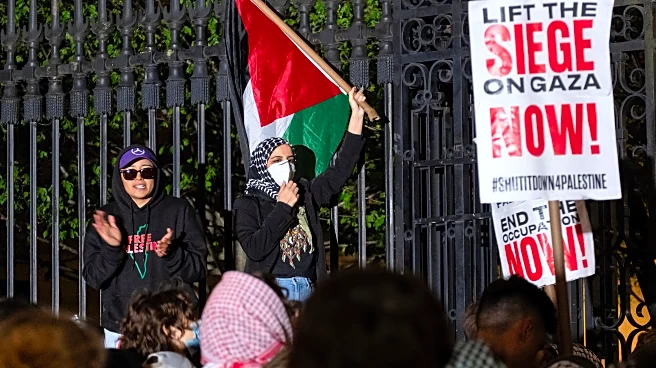What's Happening?
The 30th United Nations Climate Change Conference (COP30) in Belém, Brazil, is focusing on the urgent need for climate action, particularly in agriculture and food security. The Food and Agriculture Organization (FAO) is emphasizing the impact of climate extremes
on food yields, with unpredictable weather and increased pests and diseases already affecting farmers, fishers, and pastoralists. The FAO is advocating for sustainable and resilient agrifood systems as central to climate action, highlighting the need for integrating these systems into national climate plans and increasing climate finance for food production sectors.
Why It's Important?
The discussions at COP30 are crucial as they address the immediate and long-term impacts of climate change on global food security. With around 700 million people facing hunger, the conference underscores the importance of transforming agriculture and food systems to achieve the Paris Agreement goals. The FAO's focus on redirecting climate finance towards agrifood systems is vital for supporting the livelihoods of 1.2 billion people dependent on these sectors. The outcomes of COP30 could significantly influence global policies and funding priorities, impacting food security and climate resilience worldwide.
What's Next?
COP30 is expected to result in commitments to place agrifood systems at the center of climate action discussions. The FAO aims to support countries in integrating agrifood solutions into their climate strategies and scaling up these efforts. The conference also highlights the role of Indigenous Peoples and traditional knowledge in building resilience, with initiatives like the cabruca system in Brazil serving as examples of sustainable practices. The outcomes of COP30 will likely shape future climate policies and actions, emphasizing the need for inclusive and sustainable approaches to address the climate crisis.
Beyond the Headlines
The integration of traditional knowledge and the focus on Indigenous Peoples at COP30 highlight the cultural and ethical dimensions of climate action. By recognizing the value of traditional practices and promoting inclusive strategies, the conference aims to ensure that climate solutions are equitable and sustainable, addressing the needs of vulnerable communities and safeguarding the planet's future.

















